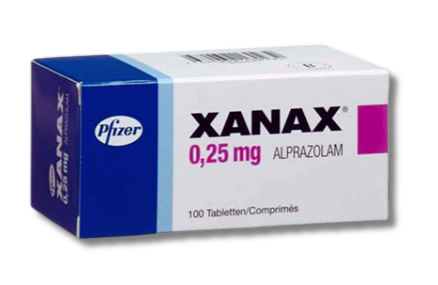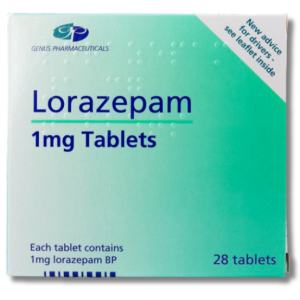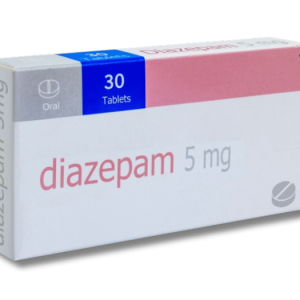Description
Alprazolam, better known by its brand name Xanax, is a prescription drug in the benzodiazepine family. Doctors mainly use it to treat anxiety disorders and panic attacks.
This fast-acting medication works by affecting certain brain chemicals that can get out of balance in people with anxiety. Its effects usually show up within 30 to 60 minutes after taking it.
Alprazolam boosts the calming effects of a brain chemical called GABA. This helps settle the nervous system and ease anxiety.
You can get alprazolam in both immediate-release and extended-release forms. That way, doctors can adjust treatment to fit each person’s needs.
Understanding Alprazolam
Alprazolam comes from the benzodiazepine group and is prescribed for anxiety disorders and panic attacks. It helps calm the mind by increasing the effects of certain brain chemicals.
Doctors can choose from immediate-release or extended-release options. Each type has its own benefits, depending on the situation.
What Is Alprazolam (Xanax)?
Alprazolam is a benzodiazepine, and you’ll usually see it under the brand name Xanax. It’s mainly prescribed for anxiety disorders and panic attacks.
This medication falls under the category of anxiolytics, meaning it’s meant to lower anxiety symptoms. It’s not a cure-all, but it can help a lot of people get through tough stretches.
Primary Uses:
- Generalised anxiety disorder (GAD)
- Panic disorder
- Anxiety-related symptoms like restlessness and worry
- Short-term relief for severe anxiety
The FDA approved alprazolam in October 1981. Since then, it’s become one of the most common prescriptions for anxiety.
You need a prescription to get alprazolam. Healthcare providers take care to assess patients before prescribing it because of the risk of dependence and misuse.
Alprazolam is a controlled substance. Doctors monitor its use closely and only prescribe it under medical supervision.
How Alprazolam Works
Alprazolam targets a neurotransmitter in the brain called gamma-aminobutyric acid, or GABA. GABA helps slow down brain activity and brings a sense of calm.
By enhancing GABA’s effects, alprazolam helps reduce the overactive brain activity that can trigger anxiety or panic. It’s pretty fast-acting, usually kicking in within 1-2 hours.
Mechanism of Action:
- Binds to GABA receptors in the brain
- Amplifies GABA’s calming effects
- Slows down abnormal brain activity
- Encourages relaxation and reduces anxiety
Immediate-release forms act quickly but don’t last as long. Extended-release versions work slower but provide longer relief.
Because it acts fast, alprazolam can be helpful for sudden anxiety spikes. But this speed also makes it more likely for people to develop dependence.
Extended-release tablets are designed to keep levels steady throughout the day. They’re often chosen for ongoing panic disorder treatment.
Available Dosage Forms and Brands
Alprazolam comes in different forms to suit various needs. Each one has its own pros and cons.
Brand Names:
- Xanax – immediate-release tablets
- Xanax XR – extended-release tablets
- Niravam – orally disintegrating tablets
Available Dosage Forms:
| Form | Strengths Available | Characteristics |
|---|---|---|
| Immediate-release tablets | 0.25mg, 0.5mg, 1mg, 2mg | Quick onset, shorter duration |
| Extended-release tablets | 0.5mg, 1mg, 2mg, 3mg | Slower onset, longer duration |
| Orally disintegrating tablets | 0.25mg, 0.5mg, 1mg, 2mg | Dissolves on tongue, no water needed |
| Oral solution | 1mg/ml | Liquid form for flexible dosing |
Most people get the immediate-release tablets. These work fast but usually require several doses a day.
Doctors often use extended-release tablets for panic disorder. They keep medication levels more stable and require fewer doses.
Orally disintegrating tablets are handy for anyone who struggles to swallow pills. They melt right on the tongue, so no water is needed.
Medical Uses and Indications
Doctors prescribe alprazolam for specific anxiety disorders and panic attacks. It’s usually a short-term solution when other treatments don’t do enough.
Treatment of Anxiety Disorders
Alprazolam helps people with anxiety disorders when symptoms start to interfere with daily life. It can calm excessive worry and physical tension in generalised anxiety disorder.
Doctors usually recommend alprazolam for short-term use. If someone needs it longer, they’ll monitor closely for signs of dependence.
Common anxiety symptoms treated include:
- Constant worry about daily life
- Physical tension and restlessness
- Trouble sleeping due to anxiety
- Problems focusing
Most people start with 0.25mg to 0.5mg, taken three times a day. Doctors adjust the dose based on how the patient responds.
Alprazolam can also help with anxiety that comes along with depression. It’s a stopgap while other treatments start working.
Panic Disorder and Agoraphobia
Panic disorder is one of the main reasons doctors prescribe alprazolam. It helps lower both the frequency and intensity of panic attacks.
People with panic disorder deal with sudden, overwhelming fear. Physical symptoms like a racing heart, sweating, and trouble breathing are common.
Agoraphobia often shows up alongside panic disorder. It’s a fear of being in situations where escape might be tough during an attack.
Alprazolam helps with:
- Reducing how often panic attacks happen
- Easing anxiety about future attacks
- Managing avoidance behaviors related to agoraphobia
- Improving overall quality of life
Doctors usually start with a low dose and slowly increase it. The daily dose rarely goes above 4mg, split throughout the day.
Other Approved Indications
Sometimes, doctors use alprazolam for anxiety tied to medical conditions or stressful events. It can help people cope with anxiety before medical procedures or during major life changes.
Short-term relief is the goal in these cases. Doctors look at other options first and use alprazolam only when necessary.
Additional uses include:
- Pre-operative anxiety management
- Anxiety before medical procedures
- Short-term stress-related anxiety
- Situational anxiety disorders
Doctors watch patients closely when prescribing for these reasons. Regular check-ins help catch signs of dependence or tolerance early.
Buy Alprazolam (Xanax) online in the UK at affordable price
In the UK, you can only get alprazolam with a private prescription. The NHS doesn’t offer Xanax prescriptions.
Some online pharmacies do sell alprazolam tablets at competitive prices. The cost usually starts at £1.16 per tablet, but this depends on the supplier and how many you order.
Available strengths and pricing
| Strength | Typical Price Range |
|---|---|
| 0.25mg | £1.16 – £2.50 per tablet |
| 0.5mg | £1.50 – £3.00 per tablet |
| 1mg | £2.00 – £4.00 per tablet |
| 2mg | £2.50 – £5.00 per tablet |
If you buy in bulk, you’ll usually get a better deal. Many suppliers offer discounts for larger orders.
Online pharmacies often provide:
- Free prescription consultations
- Next-day delivery options
- Same-day delivery within London
- Discreet packaging
- Order tracking
Before you can buy, you’ll need to complete an online consultation with a qualified prescriber. This step checks if the medication is safe for you.
Alprazolam is a Class C controlled substance and needs a valid prescription. Buying it without one is illegal.
Delivery times depend on your location. Most suppliers offer standard delivery in 2-3 working days, with next-day options if you need it fast.
You can usually pay by major credit card or secure online payment. Some pharmacies accept bank transfers for bigger orders.
Always double-check that the pharmacy is registered and legit before ordering. Look for proper licensing and regulatory info.
Risks, Side Effects, and Withdrawal
Alprazolam comes with real risks, from common drowsiness to severe withdrawal symptoms. Dependence can develop even with short-term use, and there are mental health risks like depression and even suicidal thoughts.
Common and Serious Side Effects
The most common side effects are drowsiness, dizziness, and fatigue. These happen because alprazolam slows down the central nervous system.
Some people notice memory problems or trouble concentrating. Headaches and mood changes can also pop up during treatment.
Serious side effects need immediate medical help:
- Severe confusion or disorientation
- Difficulty breathing or slowed breathing
- Loss of coordination and falls
- Unusual changes in mood or behavior
Older adults have a higher chance of confusion and balance problems, which can lead to dangerous falls. Doctors watch for these issues closely.
Alprazolam can trigger or worsen depression in some people. It’s important for healthcare providers to keep an eye on mental health throughout treatment.
Dependence, Misuse, and Withdrawal Symptoms
Alprazolam has a high risk of dependence and misuse. You can develop physical dependence in as little as one week of regular use.
Withdrawal symptoms can be intense and even life-threatening:
- Seizures (the most dangerous symptom)
- Severe anxiety and panic attacks
- Restlessness and irritability
- Hallucinations or psychosis
- Tremors and sweating
- Sleep problems and nightmares
Quitting alprazolam suddenly is very risky. Always work with a doctor to stop safely.
Withdrawal can be tougher with alprazolam than with other benzodiazepines, even if you taper the dose. People with a history of substance use disorders face an even higher risk of misuse, often preferring alprazolam for its stronger effects.
Mental Health Considerations
Alprazolam can make depression worse for some people. The medication might trigger suicidal thoughts, especially in the first weeks of treatment.
Healthcare providers need to keep a close eye on patients with mental health conditions. Regular check-ups can help spot any changes in mood or behavior.
The medication sometimes causes emotional numbness or mood swings. Some people say they feel disconnected from their emotions while taking it.
Rebound anxiety often pops up when stopping alprazolam. Anxiety symptoms might come back even stronger than before starting treatment.
Patients with depression should get extra monitoring. Combining anxiety medication and depression needs careful medical management.
Drug Interactions and Safety Precautions
Alprazolam interacts with a staggering 563 different medications. Serious complications can happen when it’s mixed with other CNS depressants.
Healthcare providers need to watch patients on multiple meds and tweak dosages for people who might be more vulnerable.
Interactions with CNS Depressants and Other Medications
CNS depressants are especially risky with alprazolam. Sedatives, muscle relaxants, prescription painkillers, and narcotics all fall into this group.
Combining them can cause severe respiratory depression and heavy sedation. That’s obviously not something you want to mess with.
Barbiturates deserve special caution. Taking them together with alprazolam can dangerously slow breathing. Most providers just avoid this combo altogether.
Antihistamines can ramp up drowsiness if used with alprazolam. Even over-the-counter sleep aids get a lot more powerful. It’s important to tell your doctor about any antihistamine use.
Certain antifungals interact in a big way:
- Itraconazole (Sporanox) raises alprazolam levels in the blood
- Ketoconazole (Nizoral) slows down how fast alprazolam breaks down
Doctors usually need to adjust doses or pick different treatments with these combos.
Some other common culprits include:
- Opioid pain meds
- Sleep meds like zolpidem
- Antidepressants such as sertraline
- ADHD meds like amphetamines
Alcohol is a huge risk with alprazolam. Mixing the two increases accident risk and can slow breathing to a dangerous level.
Special Considerations for Specific Populations
Elderly patients face higher risks from drug interactions. Their bodies break down medications more slowly.
Lower starting doses can help prevent side effects. It’s not something to take lightly.
Patients with liver disease can’t process alprazolam well. The drug lingers in their system longer, so doctors often look for alternatives.
Kidney disease changes how the body handles alprazolam too. Regular blood tests help keep things safe.
Pregnant women should avoid alprazolam if they can. The drug crosses the placenta and could harm the baby.
Doctors weigh the risks carefully before prescribing. It’s a tough call sometimes.
Breastfeeding mothers can pass alprazolam to their babies through breast milk. Babies might get drowsy or have trouble feeding.
People with respiratory problems face extra risks. Alprazolam can slow breathing even more, so those with sleep apnea need close monitoring.
Managing Overdose and Emergency Situations
Signs of alprazolam overdose:
- Extreme drowsiness
- Confusion
- Slurred speech
- Slow or difficult breathing
- Loss of consciousness
If you notice these symptoms, call poison control right away. Sometimes emergency services are needed for severe cases.
Treatment might involve:
- Activated charcoal if caught early
- Breathing support
- Flumazenil as an antidote in really bad cases
Healthcare providers keep a close watch on heart rate and breathing. Some patients need hospital observation for a few hours, just to be safe.
Prevention tips:
- Stick to prescribed doses
- Don’t drink alcohol with alprazolam
- Tell all your doctors you’re taking it
- Use a pill organizer to avoid taking too much
Family members should know the signs of overdose. Fast action can save a life if things go south.
Frequently Asked Questions
Alprazolam sparks a lot of questions about side effects, dosing, and safety. People often wonder how it stacks up against other anxiety meds or if it’s ever used for sleep.
What are the common side effects associated with the use of Alprazolam?
Common side effects include coordination problems and trouble speaking clearly. Some people notice a change in sex drive or lower blood pressure.
Drowsiness and dizziness are also pretty typical. These usually show up when starting alprazolam or when the dose goes up.
More serious issues can include breathing problems, especially if you mix it with alcohol or opioids. Some patients get unusual movements, severe mental changes, or withdrawal if they stop suddenly.
Long-term use sometimes leads to dependence. A few people develop tolerance and need higher doses for the same effect.
How does Alprazolam compare with other anxiolytic medications?
Alprazolam is part of the benzodiazepine family, along with meds like clonazepam and lorazepam. They all work by tweaking brain chemistry to calm anxiety.
Alprazolam kicks in pretty fast—usually within 30 to 60 minutes. That’s quicker than some other options.
It doesn’t last as long as meds like clonazepam, so you might need to take it more often. Dependence and withdrawal risks are similar across this group.
The potential for abuse is real with all benzodiazepines. It’s something to keep in mind.
What are the recommended dosages for Alprazolam in the treatment of anxiety?
Doctors usually start with a low dose to see how patients react. The goal is to use the smallest amount that gets the job done, to cut down on side effects.
Dosing schedules depend on the individual and how they respond. Some folks need several doses throughout the day.
Providers adjust doses slowly and carefully. No one should ever go above the prescribed amount or take it more often than directed.
Under what circumstances is the use of Alprazolam indicated for aiding sleep?
Alprazolam isn’t really a sleep medicine. Its sedating effects can help if anxiety is wrecking your sleep, but that’s not its main purpose.
Doctors might prescribe it if anxiety keeps you up at night. Usually, this is only for short-term use.
For regular insomnia, other sleep meds are usually better choices. Alprazolam should only be used for sleep when anxiety is the main culprit.
What are the legal considerations surrounding the prescription and use of Alprazolam?
Alprazolam is a controlled substance because of its abuse and dependence risk. You need a prescription from a licensed provider.
It’s illegal and dangerous to share alprazolam with others. Each prescription is tailored to the individual.
Patients should store it securely to prevent theft or accidents. Keeping it away from kids and in a locked spot is a good idea.
Healthcare providers follow strict prescribing and monitoring rules. Regular check-ups help make sure the treatment stays safe and effective.
How should Alprazolam be taken to ensure effectiveness and safety?
Take alprazolam exactly as your healthcare provider tells you. Using more than they prescribe or taking it for longer than you should? That just ramps up the risks.
Try to take your medication at the same times each day, as directed. Missing a dose or doubling up can throw off your treatment and isn’t safe.
Skip alcohol and other sedating stuff while you’re on alprazolam. Mixing them can mess with your breathing and make you way too drowsy—honestly, it’s not worth it.
If you need to stop alprazolam, don’t just quit cold turkey. That can lead to rough withdrawal symptoms, even seizures. Always let your healthcare provider guide any changes to your dose or if you need to stop.



Reviews
There are no reviews yet.